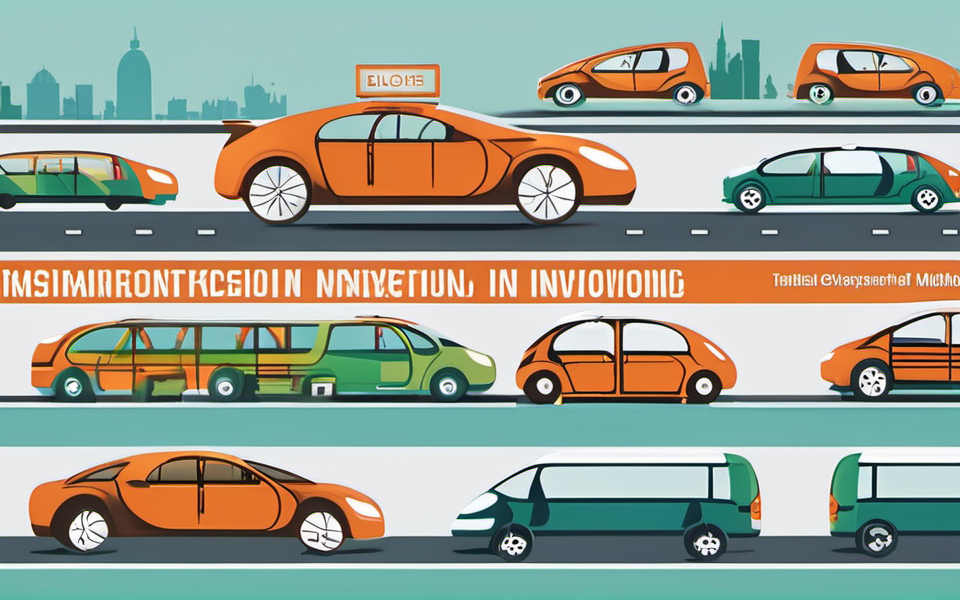Forget everything you think you know about getting around. The future of transportation is here, and it’s electric, autonomous, and connected – all powered by smart data and revolutionary regulations. Buckle up, because the journey is about to get a whole lot more exciting!
A World in Motion:
The global transportation landscape is in constant flux, driven by advancements in electric vehicles, autonomous vehicles, ride-sharing services, micro-mobility, and smart city initiatives. This evolution has given rise to a dynamic ecosystem, a mobility ecosystem where individual modes of transport interact and collaborate seamlessly. But how do we ensure a smooth transition from our current model to this dynamic future? The answer lies in smart regulation – an approach that embraces innovation while prioritizing safety, sustainability, and inclusivity.
Regulation Reimagined:
Traditionally, transportation regulations focused on individual vehicle types. But with the emergence of the mobility ecosystem, a more holistic approach is required. Regulations must be flexible, adaptive, and forward-thinking, creating a level playing field for new mobility service providers while safeguarding passenger safety.
Embracing New Mobility Models:
-
Shared Mobility: Sharing economy platforms, like ride-sharing services and bike-sharing programs, are changing how we move around cities. Regulators need to create permitting and licensing systems that encourage safe and efficient operations, while also ensuring fair competition.
-
Electric Vehicles (EVs): The transition to electric vehicle adoption requires supportive infrastructure. This includes charging station deployment, incentives for purchase, and regulations that prioritize EV integration into existing road networks.
-
Autonomous Vehicles (AVs): The development of autonomous vehicle technology poses both opportunities and challenges. Regulations must address issues like liability in accidents, safety standards, and integration with human drivers.
Building Smart and Sustainable Cities:
-
Smart Cities & Data: The rise of the mobility ecosystem is deeply entwined with smart city initiatives. These leverage big data from various mobility sources to optimize traffic flow, reduce congestion, and create more sustainable transportation solutions.
-
Data Privacy & Security: Regulations must ensure data privacy and security for individuals. Clear guidelines on data collection, storage, and usage are crucial.
A People-Centric Approach:
The goal is to create a mobility ecosystem that works for everyone. Regulations need to consider social equity, accessibility, and affordability, particularly for underserved populations.
Key Considerations for Regulations in a Mobility Ecosystem:
1. Flexibility and Adaptability: Regulations need to be agile and adaptable, capable of keeping pace with rapid technological advancements and changing societal needs.
2. Collaboration and Interoperability: Encouraging collaboration among various players within the ecosystem, like technology companies, auto manufacturers, public transport agencies, and regulators, is key to a smooth transition.
3. Prioritizing Safety & Sustainability: Ensuring that safety remains a top priority throughout the entire mobility ecosystem is essential. Regulations need to foster the development and deployment of environmentally sustainable technologies, contributing to a greener future.
4. Encouraging Innovation: Regulation can incentivize and accelerate innovation by creating clear guidelines, fostering experimentation, and creating a conducive environment for new ventures.
Key Takeaways:
The mobility ecosystem is a revolutionary force, changing the way we move. By adopting a forward-thinking, data-driven, and people-centered approach to regulation, we can harness its power to build safer, cleaner, and more accessible transportation systems for the future. The journey ahead is exciting – one that requires collaborative action from government agencies, technology developers, businesses, and individuals to achieve a mobility ecosystem that truly works for everyone.




